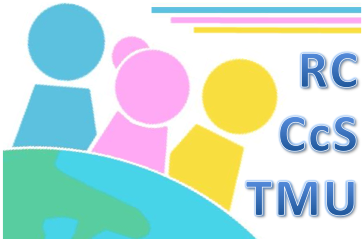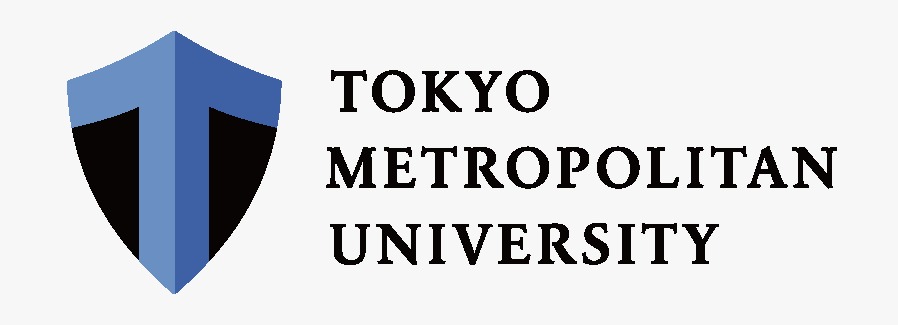Plenary Talks of CcS 2020


Speaker: Prof. Tony Belpaeme
Title: Learning from social robots
Date: 24 September 2020
Time: 16:00 - 17:00
Abstract:
Social robots are robots which manipulate the social world, rather than the physical world of traditional robotics. Their appearance and behaviour is designed to tap into the human desire for social interaction. Because social interaction comes naturally to all of us, there is a misconception that building artificial social interaction is easy. This talk will argue that social robotics is on the one hand one of the hardest challenges in robotics but will at same time show that relatively simple designs and behaviours can go a long way in achieving social human-robot interaction. The illustrate the power of social robots the talk will focus on how social robots can be used to support education, and in specific how social robots can support children when learning a second language.
Speaker Biography:
Tony Belpaeme is Professor at the University of Ghent, Belgium and Professor in Robotics and Cognitive Systems at Plymouth University, UK. At Plymouth and Ghent he leads a team studying the science and technology of cognitive robotics and human-robot interaction. He was general co-chair of the 2020 ACM/IEEE International Conference on Human-Robot Interaction, Cambridge, UK. Starting from the premise that intelligence is rooted in social interaction, Belpaeme and his research team try to further the science and technology behind artificial intelligence and social robots. This results in a spectrum of results, from theoretical insights to practical applications. The theoretical insights, in which he argues that interaction is central to natural and artificial cognition and that robots and machines should be sensitive to language and paralinguistic social mechanisms used by people, has drawn considerable academic attention. He complements this work by applying these insights in the design and implementation of robots and robotic applications. This work has been picked up by industry and has been taken up in clinical and educational practice, where robots are used to support and tutor children.
His research is used as a showcase of research success by various funding agencies, most recently the Research Councils UK, Engineering and Physical Sciences Research Council (EPSRC) and the European Commission. The combination of both theoretical cognitive systems research applied to topics with societal relevance has gained him an international reputation. Belpaeme's research was exhibited at the Wellcome Trust, the London Science Museum, the Natural History Museum and the National Space Centre. His work often features in the international press (Le Monde, the Guardian, Sunday Times, Scientific American .) and media. In 2013, Research Councils UK chose his work as one of "ten life changing ideas under research at UK universities", and in 2014 the Big Ideas for the Future report of RC UK and Universities UK mentioned his research as "20 new ideas from UK universities that will change the world".
Title: Artificial Intelligence (AI) for Humanity
Date: 25 September 2020
Time: 9:00 - 10:00
Social robots are robots which manipulate the social world, rather than the physical world of traditional robotics. Their appearance and behaviour is designed to tap into the human desire for social interaction. Because social interaction comes naturally to all of us, there is a misconception that building artificial social interaction is easy. This talk will argue that social robotics is on the one hand one of the hardest challenges in robotics but will at same time show that relatively simple designs and behaviours can go a long way in achieving social human-robot interaction. The illustrate the power of social robots the talk will focus on how social robots can be used to support education, and in specific how social robots can support children when learning a second language.
Speaker Biography:
Tony Belpaeme is Professor at the University of Ghent, Belgium and Professor in Robotics and Cognitive Systems at Plymouth University, UK. At Plymouth and Ghent he leads a team studying the science and technology of cognitive robotics and human-robot interaction. He was general co-chair of the 2020 ACM/IEEE International Conference on Human-Robot Interaction, Cambridge, UK. Starting from the premise that intelligence is rooted in social interaction, Belpaeme and his research team try to further the science and technology behind artificial intelligence and social robots. This results in a spectrum of results, from theoretical insights to practical applications. The theoretical insights, in which he argues that interaction is central to natural and artificial cognition and that robots and machines should be sensitive to language and paralinguistic social mechanisms used by people, has drawn considerable academic attention. He complements this work by applying these insights in the design and implementation of robots and robotic applications. This work has been picked up by industry and has been taken up in clinical and educational practice, where robots are used to support and tutor children.
His research is used as a showcase of research success by various funding agencies, most recently the Research Councils UK, Engineering and Physical Sciences Research Council (EPSRC) and the European Commission. The combination of both theoretical cognitive systems research applied to topics with societal relevance has gained him an international reputation. Belpaeme's research was exhibited at the Wellcome Trust, the London Science Museum, the Natural History Museum and the National Space Centre. His work often features in the international press (Le Monde, the Guardian, Sunday Times, Scientific American .) and media. In 2013, Research Councils UK chose his work as one of "ten life changing ideas under research at UK universities", and in 2014 the Big Ideas for the Future report of RC UK and Universities UK mentioned his research as "20 new ideas from UK universities that will change the world".
Speaker: Prof. Karen A. Panetta
Title: Artificial Intelligence (AI) for Humanity
Date: 25 September 2020
Time: 9:00 - 10:00
Abstract:
Natural disasters including earthquakes, tsunamis, and anthropogenic disasters, such as wildfires, are dynamic situations requiring constant monitoring as numerous hazards are constantly emerging that hinder humanitarian efforts and create deadly conditions for rescue workers and victims. Now, with humanity facing a pandemic, it becomes even more vital to provide health care workers and first responders with low-cost and robust methods to protect themselves and help stop the spread of a disease that is ravaging our lives and economies. There are high expectations that Artificial Intelligence will be the game changing technology that will make sense of the plethora of disparate sources of data being collected about individuals, communities and the environment and that it will help solve all of these problems. Meanwhile, coupling AI with robotics is anticipated to be the foundation for a future contactless society that will mitigate the spread of diseases and keep us healthier. However, AI is not a box that can magically produce these solutions and building trustworthy AI comes with many challenges. This talk will discuss those challenges and explore some of the pathways forward to best utilize AI and its promise to advance robotics to conquer societal challenges.
Speaker Biography:
Dr. Karen A. Panetta is the Dean for Graduate Education in the Tufts University School of Engineering, a Professor in the Department of Electrical & Computer Engineering and an Adjunct Professor of Computer Science and Adjunct Professor of Mechanical Engineering. She is the CEO and Co-Founder of Tessera Intelligence, which specializes in visual and sensing technology solutions for detection and recognition systems. Dr. Panetta was the 2019 President of IEEE HKN (Eta-Kappa, Nu) and is the Editor-in-Chief of the award-winning IEEE Women in Engineering Magazine. She was a NASA JOVE Fellow and Vice-President of IEEE-USA. Prior to joining the Tufts faculty, Dr. Panetta was a Principal Engineer for Digital Equipment Corporation. Karen is the recipient of the Norm Augustine Award. Previous recipients of this prestigious award included Astronaut Neil Armstrong. She is also the recipient of the Anita Borg, Women of Vision award and the IEEE Education Society, William Sayle Award for achievement in Engineering Education. Karen is known as a pioneer for championing engineering education to diverse and inclusive audiences. She co-authored the book Count Girls In: Empowering Girls to Combine Any Interests with STEM to Open Up a World of Opportunity. She created the internationally acclaimed Nerd Girls Program, which promotes Science and Engineering education for young girls. has personally conducted outreach activities to over 85,000 young students, parents and community leaders around the world. She is now the co-host and creator of the web series Nerd Girl Nation, a show that celebrates female role models using their engineering and science skills to benefit humanity. In 2011, Karen was recognized at the White House in Washington, DC by U.S. President Barack Obama and awarded the NSF Presidential (PAESMEM) Award, the nation's highest award for Excellence in Science, Mathematics and Engineering Mentoring.
Natural disasters including earthquakes, tsunamis, and anthropogenic disasters, such as wildfires, are dynamic situations requiring constant monitoring as numerous hazards are constantly emerging that hinder humanitarian efforts and create deadly conditions for rescue workers and victims. Now, with humanity facing a pandemic, it becomes even more vital to provide health care workers and first responders with low-cost and robust methods to protect themselves and help stop the spread of a disease that is ravaging our lives and economies. There are high expectations that Artificial Intelligence will be the game changing technology that will make sense of the plethora of disparate sources of data being collected about individuals, communities and the environment and that it will help solve all of these problems. Meanwhile, coupling AI with robotics is anticipated to be the foundation for a future contactless society that will mitigate the spread of diseases and keep us healthier. However, AI is not a box that can magically produce these solutions and building trustworthy AI comes with many challenges. This talk will discuss those challenges and explore some of the pathways forward to best utilize AI and its promise to advance robotics to conquer societal challenges.
Speaker Biography:
Dr. Karen A. Panetta is the Dean for Graduate Education in the Tufts University School of Engineering, a Professor in the Department of Electrical & Computer Engineering and an Adjunct Professor of Computer Science and Adjunct Professor of Mechanical Engineering. She is the CEO and Co-Founder of Tessera Intelligence, which specializes in visual and sensing technology solutions for detection and recognition systems. Dr. Panetta was the 2019 President of IEEE HKN (Eta-Kappa, Nu) and is the Editor-in-Chief of the award-winning IEEE Women in Engineering Magazine. She was a NASA JOVE Fellow and Vice-President of IEEE-USA. Prior to joining the Tufts faculty, Dr. Panetta was a Principal Engineer for Digital Equipment Corporation. Karen is the recipient of the Norm Augustine Award. Previous recipients of this prestigious award included Astronaut Neil Armstrong. She is also the recipient of the Anita Borg, Women of Vision award and the IEEE Education Society, William Sayle Award for achievement in Engineering Education. Karen is known as a pioneer for championing engineering education to diverse and inclusive audiences. She co-authored the book Count Girls In: Empowering Girls to Combine Any Interests with STEM to Open Up a World of Opportunity. She created the internationally acclaimed Nerd Girls Program, which promotes Science and Engineering education for young girls. has personally conducted outreach activities to over 85,000 young students, parents and community leaders around the world. She is now the co-host and creator of the web series Nerd Girl Nation, a show that celebrates female role models using their engineering and science skills to benefit humanity. In 2011, Karen was recognized at the White House in Washington, DC by U.S. President Barack Obama and awarded the NSF Presidential (PAESMEM) Award, the nation's highest award for Excellence in Science, Mathematics and Engineering Mentoring.







